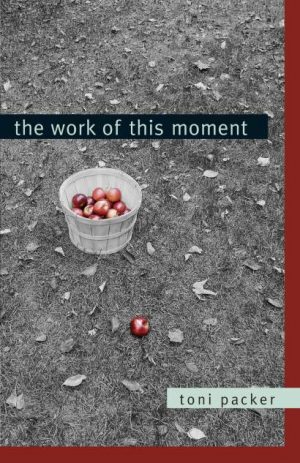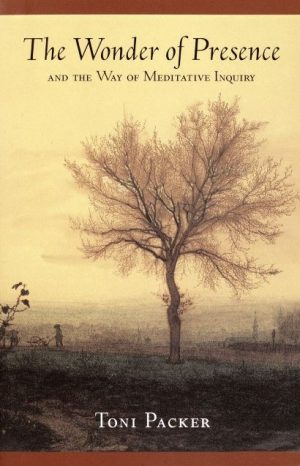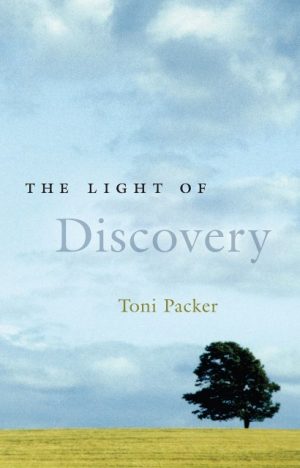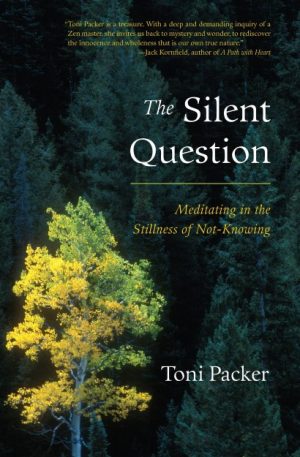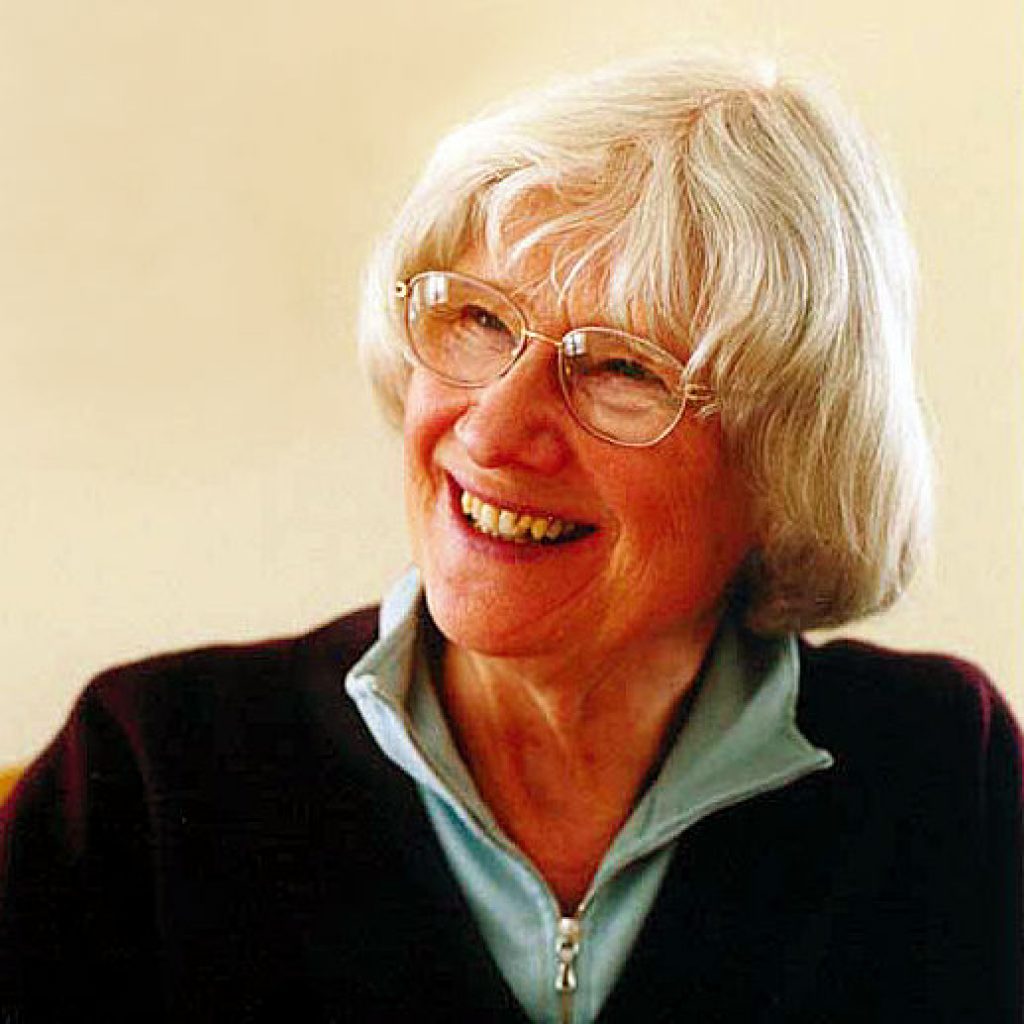
“Awareness cannot be taught, and when it is present it has no context. All contexts are created by thought and are therefore corruptible by thought. Awareness simply throws light on what is, without any separation whatsoever.“
Toni Packer
"The emergence and blossoming of understanding, love and intelligence has nothing to do with any tradition, no matter how ancient or impressive — it has nothing to do with time. It happens completely on its own when a human being questions, wonders, listens and looks without getting stuck in fear, pleasure and pain. When self concern is quiet, in abeyance, heaven and earth are open. The mystery, the essence of all life is not separate from the silent openness of simple listening."
Toni Packer was instrumental in founding the organization that became Springwater Center, and was the Center’s resident teacher from 1982 until her death.
Toni was born in Berlin Germany July 5, 1927, the daughter of scientists John Eggert and Margarethe Ettisch. When she was very young, her family moved to Leipzig. During the years prior to World War II and the war itself, she and her family were in constant danger of being sent to a concentration camp because of her mother’s Jewish heritage. They were spared only because of her father’s prominence as a scientist.
Living in an atmosphere of persecution coupled with wartime bombing contributed to Toni beginning a deep questioning to find meaning in a seemingly meaningless life.
The family moved to Switzerland after the war, where Toni met a young American student, Kyle Packer. They married in 1950, and eventually settled in North Tonawanda, New York. In the late 1950’s they adopted a son. One day while rocking and burping the new baby, Toni experienced a spiritual opening—a revelation that in this universe there was time and space for everything.
In Nazi Germany Toni had been denied access to higher education; as an adult she took great delight in studying psychology, sociology, and anthropology at the University of Buffalo. In 1955/56 she worked as a graduate assistant in the Psychology Department. Her interest in Zen was initially piqued by the writing of Alan Watts, and she read D.T. Suzuki and other Zen authors, but it was not until she encountered Philip Kapleau’s The Three Pillars of Zen, with instructions on sitting meditation, that she found something she could actually do.
She began travelling to Rochester NY in 1967 to attend sesshin with Roshi Kapleau at the newly-formed Rochester Zen Center. In her very first sesshin she took a walk around the neighborhood and suddenly felt the weight of having a Jewish identity drop away. On relating this to the Roshi he was impressed, but also told her “Don’t go for walks!” She became a senior student and eventually a teacher, beginning to lead retreats in 1976.
After some time of deep self-questioning and contact with the work of J. Krishnamurti, Toni realized that she could no longer continue working within a traditional Buddhist context. She left the Rochester center, and with the support of a large community, the Genesee Valley Zen Center was founded in 1982. The new organization would allow people to continue working in a Zen context without the forms and rituals of traditional Zen.
Toni had had a vision that being in the country would be of great benefit to people engaged in meditation. A land search resulted in securing an ideal property in Springwater NY, with building beginning in 1984. The organization was renamed Springwater Center two years later. At about the same time, Toni gained wider recognition with the publication of Lenore Friedman’s book Meetings with Remarkable Women.
Toni was an active daily presence in the life of Springwater Center for decades, sharing her vibrant passion for the work that she termed meditative inquiry. She led retreats, met with visitors and traveled to Europe, California and Canada to hold retreats and talks. As well as being the resident teacher, she served as the administrator and was a member of the board of trustees. With her insight, energy, warmth, and humor she was a guiding force as the organization evolved from tumultuous beginnings to the well-known Center of today.
In ill health in her later years, Toni continued to participate in meetings and retreats from her home until 2011. She died August 23, 2013, at the skilled nursing facility in nearby Mount Morris, leaving an extensive legacy of books and recorded talks.
Toni Packer
"The emergence and blossoming of understanding, love and intelligence has nothing to do with any tradition, no matter how ancient or impressive — it has nothing to do with time. It happens completely on its own when a human being questions, wonders, listens and looks without getting stuck in fear, pleasure and pain. When self concern is quiet, in abeyance, heaven and earth are open. The mystery, the essence of all life is not separate from the silent openness of simple listening."
Toni Packer was instrumental in founding the organization that became Springwater Center, and was the Center’s resident teacher from 1982 until her death.
Toni was born in Berlin Germany July 5, 1927, the daughter of scientists John Eggert and Margarethe Ettisch. When she was very young, her family moved to Leipzig. During the years prior to World War II and the war itself, she and her family were in constant danger of being sent to a concentration camp because of her mother’s Jewish heritage. They were spared only because of her father’s prominence as a scientist.
Living in an atmosphere of persecution coupled with wartime bombing contributed to Toni beginning a deep questioning to find meaning in a seemingly meaningless life.
The family moved to Switzerland after the war, where Toni met a young American student, Kyle Packer. They married in 1950, and eventually settled in North Tonawanda, New York. In the late 1950’s they adopted a son. One day while rocking and burping the new baby, Toni experienced a spiritual opening—a revelation that in this universe there was time and space for everything.
In Nazi Germany Toni had been denied access to higher education; as an adult she took great delight in studying at the University of Buffalo. Her interest in Zen was initially piqued by the writing of Alan Watts, and she read D.T. Suzuki and other Zen authors, but it was not until she encountered Philip Kapleau’s The Three Pillars of Zen, with instructions on sitting meditation, that she found something she could actually do.
She began travelling to Rochester NY in 1967 to attend sesshin with Roshi Kapleau at the newly-formed Rochester Zen Center. In her very first sesshin she took a walk around the neighborhood and suddenly felt the weight of having a Jewish identity drop away. On relating this to the Roshi he was impressed, but also told her “Don’t go for walks!” She became a senior student and eventually a teacher, beginning to lead retreats in 1976.
After some time of deep self-questioning and contact with the work of J. Krishnamurti, Toni realized that she could no longer continue working within a traditional Buddhist context. She left the Rochester center, and with the support of a large community, the Genesee Valley Zen Center was founded in 1982. The new organization would allow people to continue working in a Zen context without the forms and rituals of traditional Zen.
Toni had had a vision that being in the country would be of great benefit to people engaged in meditation. A land search resulted in securing an ideal property in Springwater NY, with building beginning in 1984. The organization was renamed Springwater Center two years later. At about the same time, Toni gained wider recognition with the publication of Lenore Friedman’s book Meetings with Remarkable Women.
Toni was an active daily presence in the life of Springwater Center for decades, sharing her vibrant passion for the work that she termed meditative inquiry. She led retreats, met with visitors and traveled to Europe, California and Canada to hold retreats and talks. As well as being the resident teacher, she served as the administrator and was a member of the board of trustees. With her insight, energy, warmth, and humor she was a guiding force as the organization evolved from tumultuous beginnings to the well-known Center of today.
In ill health in her later years, Toni continued to participate in meetings and retreats from her home until 2011. She died August 23, 2013, at the skilled nursing facility in nearby Mount Morris, leaving an extensive legacy of books and recorded talks.
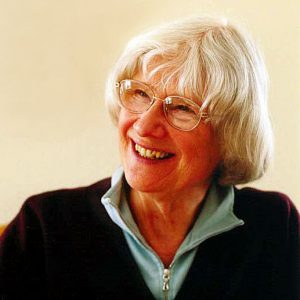
A Day of Retreat with Toni, April 2002
Talks and Articles by Toni
Listen to a talk by Toni
“How does one look at a flower?” August 1992
“Loss of a Loved One” November 2003
“The self—Does such a thing exist?” May 1988
Articles by Toni
Dialogues with Toni
Books by Toni
The Work of This Moment
In this compelling collection of talks, essays, interviews, and letters, Toni Packer presents a radically simple and original approach to spiritual growth free from religious authority, doctrine, symbolism, and ceremony. A former Zen teacher and student of Krishnamurti’s work, Toni Packer goes beyond traditional religion and explores with the reader the root of human attachments and the source of suffering, opening the way to compassion.
The Wonder of Presence
In this collection of talks, interviews, and letters, Toni Packer provides a comprehensive overview of the path of meditative inquiry—a nondenominational approach to spiritual growth that emphasizes the direct experience of the present moment. “The immense challenge for each one of us,” Packer writes, “is can we live our lives, at least for moments at a time, in the wonder of presence that is the creative source of everything?” She shows how we can transform fear, anger, guilt, and attachment to our self-image through simple, direct awareness. Having recently lost her husband of fifty years, Packer also speaks with candor and tenderness about the convulsions of a grieving heart and the peace that undivided awareness can bring.
The Light of Discovery
To read this book is to encounter the essence of our lives and our everyday concerns. Toni Packer shines her gentle light on fear, compassion, impermanence, attraction, prejudice, enlightenment, and much more as she invites us into our own light of discovery. As she says, “In truth we are not separate from each other, or from the world, from the whole earth, the sun or moon or billions of stars, not separate from the entire universe. Listening silently in silent wonderment, without knowing anything, there is just one mysteriously palpitating aliveness.”
The Silent Question
In The Silent Question, Packer provides fresh insights on using the experiences of life that are raw, messy, painful, and sometimes full of laughter, to open a way to compassion. She urges us to let go of our thoughts and to sit “in the stillness of not knowing” in order to reflect upon the essential question of who we are. Packer encourages us to discover that life, energy, and insight come from the questioning, the looking, the listening.


